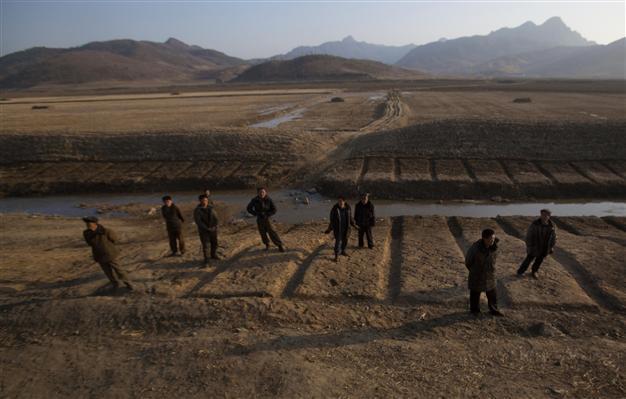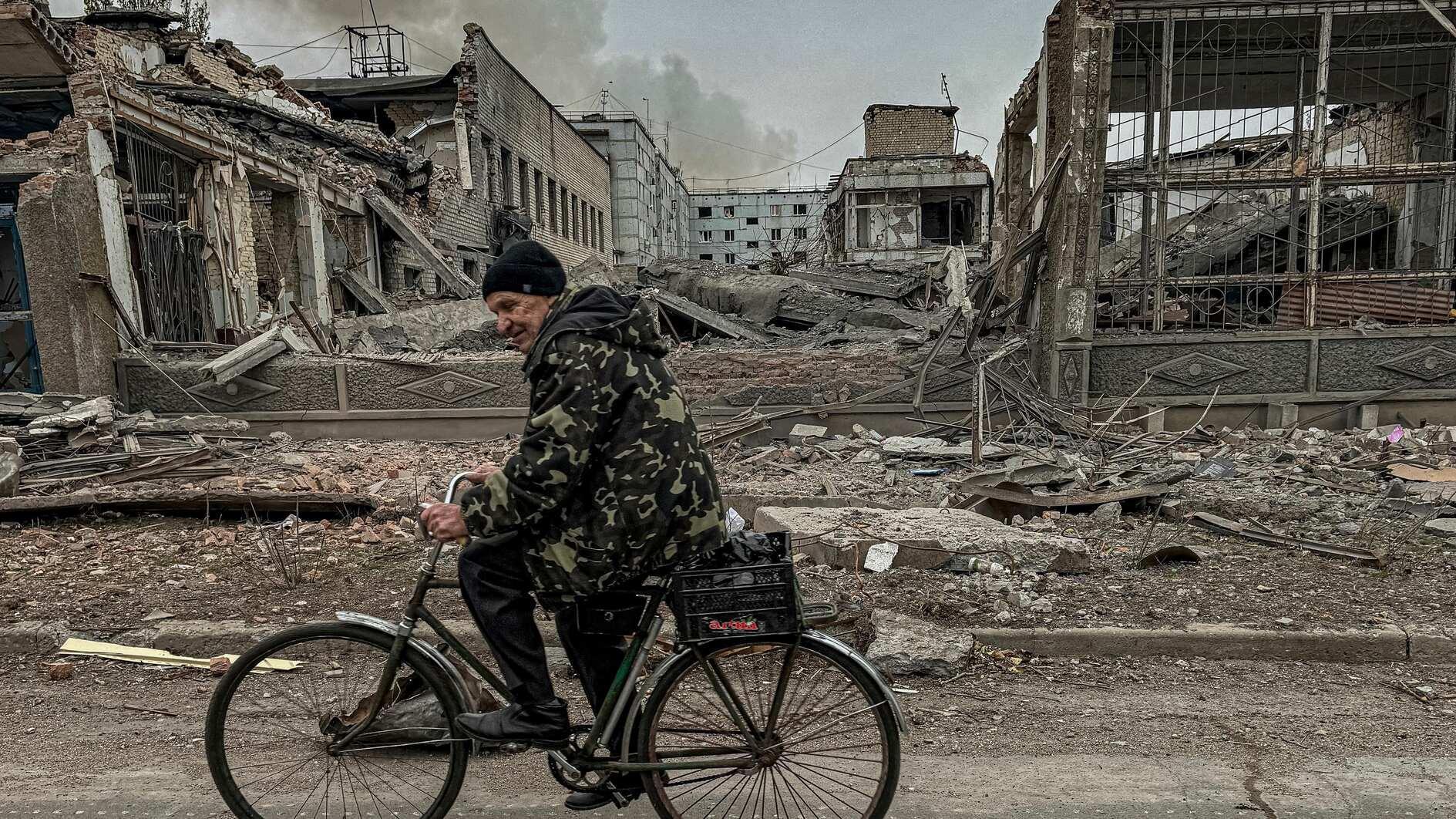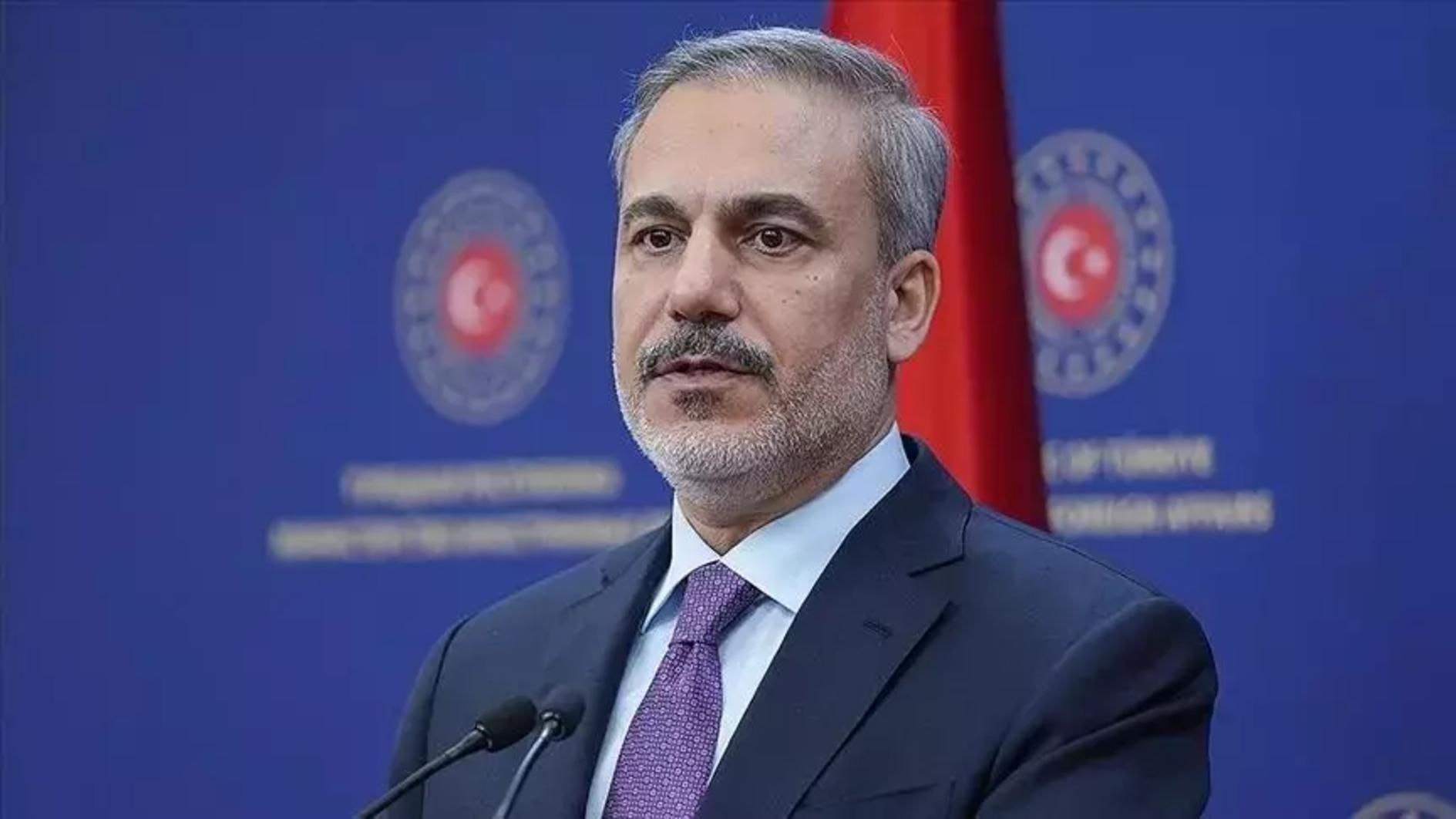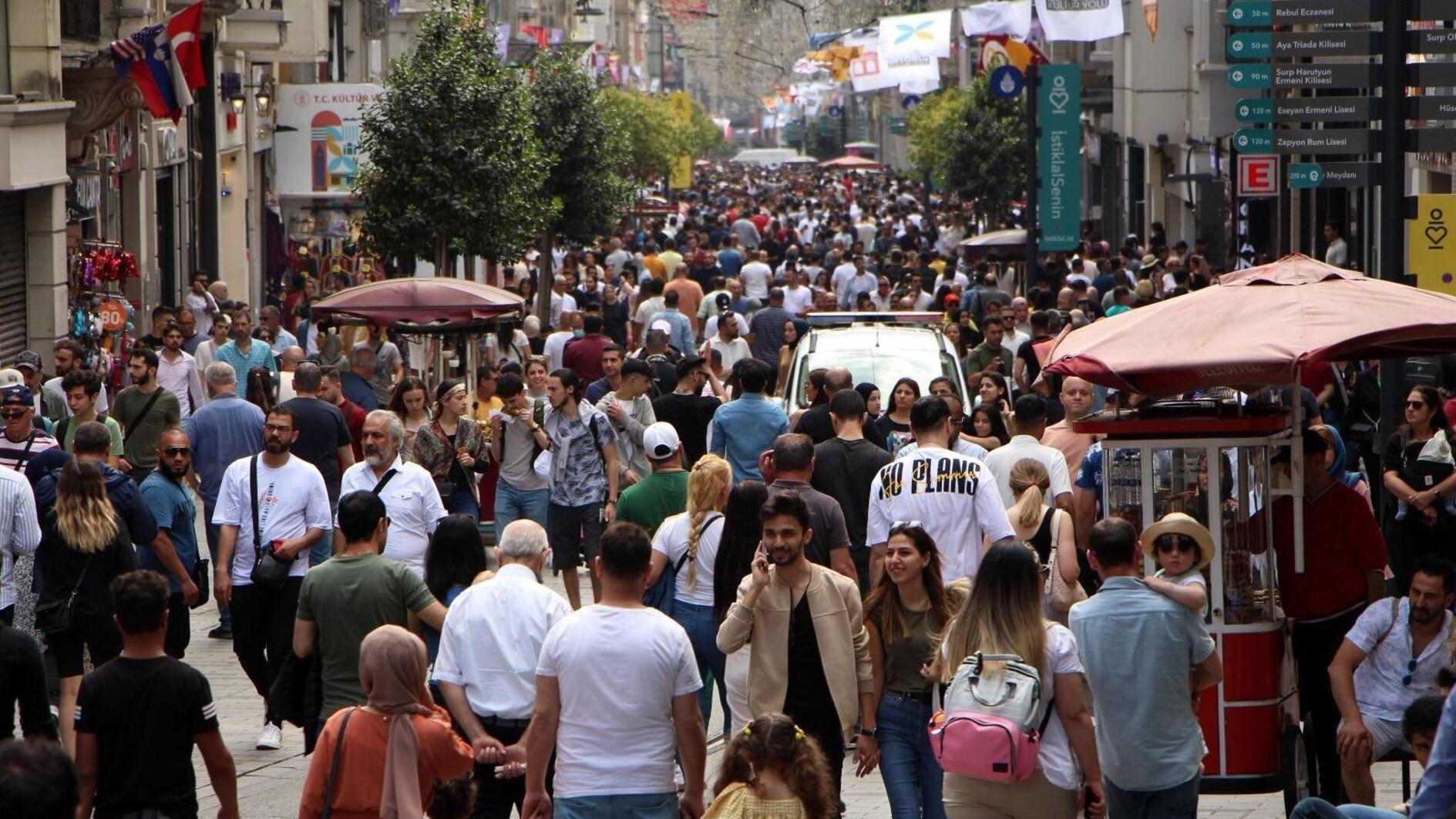Millions of North Koreans suffer chronic food shortages: UN
SEOUL - Agence France-Presse

In this photo taken on Sunday, April 8, 2012, North Koreans stand in a field as they watch a train pass that was heading to North Phyongan Province, about 50 kilometers (35 miles) south of the border town of Sinuiju along North Korea's west coast. AP photo
Millions of North Koreans suffer chronic food shortages and dire health care, leaving one in three young children stunted, and there are no immediate signs of reforms to spur economic growth, the United Nations says.Some 16 million people -- two-thirds of the population -- depend on the state rationing system and suffer varying degrees of chronic food insecurity, six UN agencies operating inside the North say in a report released Tuesday.
About one in three children aged under five are stunted -- too short for their age -- because of malnutrition, it says. The health care system is "in dire shape", plagued by frequent power cuts and with less than 30 percent of essential drug needs covered.
The North is the only Asia-Pacific country not on track to meet Millennium Development Goals on reducing child mortality, improving maternal health and combating disease, says the report dated May 29.
Inadequate access to safe water and poor sanitation, coupled with poor hygiene, are mainly to blame for the high incidence of diarrhoea among the under-fives. The report says natural disasters such as floods and landslides, worsened by the deforestation of slopes, pose serious threats to life.
The UN says the structural causes of food shortages can only be fully addressed through government policy changes, but stresses that humanitarian assistance does save lives.
It says UN agencies need $198 million for their activities in the North this year but less than 40 percent of this had been donated as of May.
While there were "currently no signs" that the government would undertake any of the structural reforms needed to spur growth, it has begun to publicly acknowledge severe food shortages, the UN says.
In January 2011, for the first time in seven years, it made an official request for international food aid. But limitations on access for aid workers persist.
"The government often places unacceptable constraints on access" required by humanitarian agencies, the report says.
















